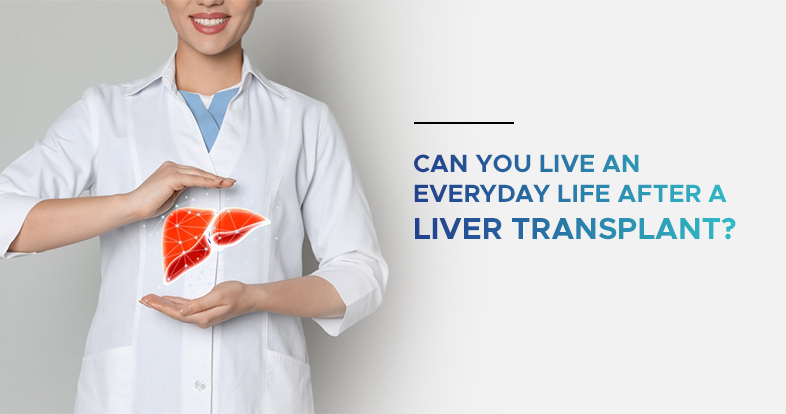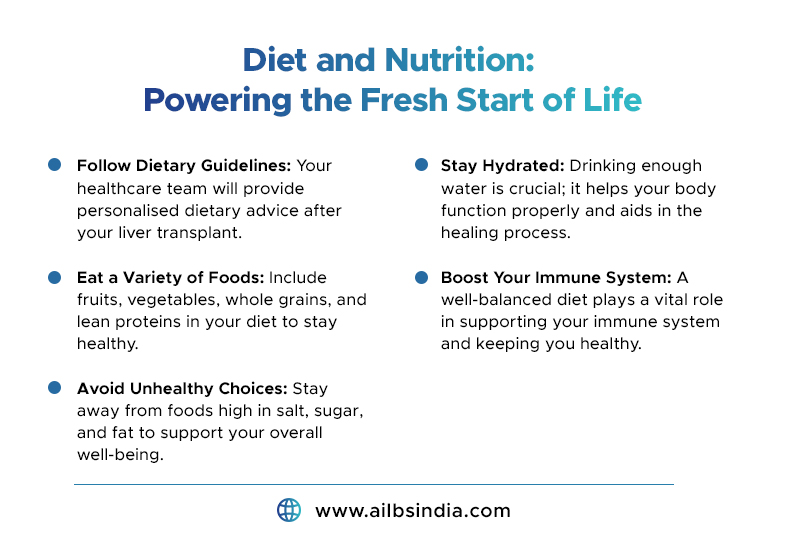
Getting a liver transplant surgery can be a life-saving miracle, offering a second chance at life to individuals suffering from severe liver diseases. If you or your loved one have recently undergone a liver transplant, you might be wondering, “Can I lead a normal life after this procedure?” The answer is a big yes! In this blog post, we will explore what life after a liver transplant looks like, the adjustments you may need to make, and how you can continue to live a fulfilling everyday life.
Your body requires time to repair and adjust to the new organ after a liver transplant. This initial phase of recovery, which usually takes a few weeks to several months, is critical to paying close attention to the instructions given by your medical team. It’s possible that you’ll need to take medication, go to checkups on a regular basis, and stick to a diet. Rest assured that most transplant recipients can gradually resume their daily activities with proper care.
One of the essential aspects of life after a liver transplant is managing your medications. These medications are vital to prevent your body from rejecting the new liver. It’s necessary to take them exactly as prescribed by your healthcare provider. Regular medication, combined with healthy lifestyle choices, can significantly enhance the quality of your life post-transplant.
Maintaining a balanced and nutritious diet is crucial for your overall well-being after a liver transplant.

Engaging in regular physical activity can do wonders for your physical and mental health after a liver transplant.
After a liver transplant, the emotional recovery process can be difficult. Feeling a mix of emotions, such as thankfulness, fear, and even guilt, is normal. Speak with members of your support system, such as friends, family, and mental health providers. Participating in support groups can foster understanding and a sense of community. If you feel that therapy or counselling is helpful, don’t be afraid to pursue it. It’s equally crucial to look after your mental health as it is your physical health.
Life after a liver transplant is indeed possible, and many transplant recipients go on to lead fulfilling, productive lives. You can confidently embrace your new lease on life by following your medical team’s advice, managing medications, maintaining a healthy lifestyle, staying active, and nurturing your emotional well-being. So, if you are looking for the best advice or treatment for liver transplant cost in India, Dr Vivek Vij is here to help. He has 20 + years of experience in giving the best treatment for various types of liver diseases. Book an appointment now to consult. Contact on: +91 9999722221
Q1: Can I resume my normal activities after a liver transplant?
A1: Yes, you can! After the initial recovery period, most transplant recipients can gradually resume their normal activities. Following your healthcare provider’s advice and listening to your body while transitioning back to your everyday routine is essential.
Q2: Will I have to take medications for the rest of my life?
A2: Yes, taking medications is a crucial part of life after a liver transplant. These medications help prevent your body from rejecting the new liver. It’s essential to take them exactly as prescribed by your healthcare provider. Regular medication ensures the long-term success of the transplant.
Q3: Can I have a regular diet after the transplant, or are there restrictions?
A3: While you can enjoy a regular diet, it’s essential to maintain a balanced and nutritious eating plan. Focus on consuming a variety of fruits, vegetables, whole grains, and lean proteins. Avoid excessive salt, sugar, and fatty foods. Your healthcare team will provide specific dietary guidelines tailored to your needs.
Q4: Is it safe to exercise after a liver transplant?
A4: Yes, engaging in regular physical activity after a liver transplant is safe and highly encouraged. Start with light exercises such as walking, stretching, or yoga, and gradually increase your activity level as your strength improves. Always consult your healthcare provider before starting any new exercise regimen to ensure your safety and well-being.
Q5: How can I manage my emotional well-being after the transplant?
A5: Reach out to your support network, join support groups, and consider therapy or counselling if needed. Taking care of your mental health can significantly improve your overall quality of life after the transplant.


